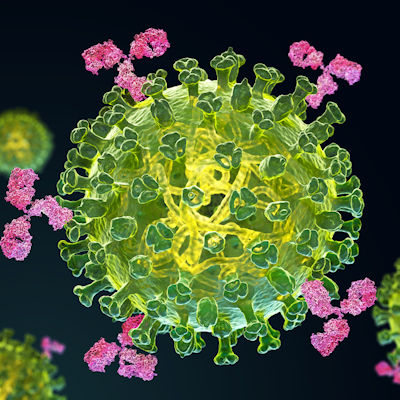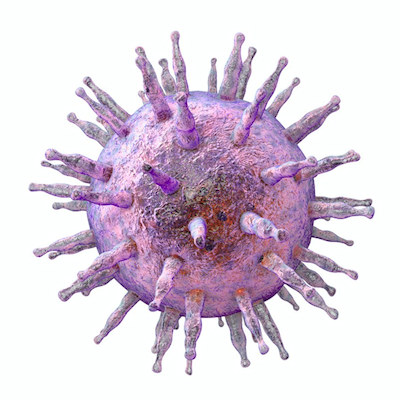October 31, 2022 -- A panel of investigational monoclonal antibodies targeting different Epstein-Barr virus (EBV) sites were found to block infection when tested both on human cells and in mice.
The research, published October 27 in the journal Immunity, was conducted by scientists from the National Institute of Allergy and Infectious Diseases and the Walter Reed Army Institute of Research.
Following infection with EBV -- among the most common human viruses -- the virus becomes dormant in the body, but sometimes reactivates. EBV is the primary cause of infectious mononucleosis and is associated with diseases including Hodgkin's lymphoma and multiple sclerosis. Transplant recipients and other immunocompromised people are more likely to develop severe symptoms and complications from EBV infection. EBV vaccines are not yet available.
The researchers developed investigational monoclonal antibodies (mAbs) targeting two key proteins found on EBV's surface -- gH and gL -- which are known to facilitate EBV fusion with human cells and cause infection. When tested, these mAbs prevented EBV infection of human B cells and epithelial cells lining the throat at the initial EBV infection site. Using x-ray crystallography and advanced microscopy, the researchers analyzed the mAbs and their two surface protein structures and identified multiple sites of vulnerability to potentially target.
Further research revealed that one of the experimental monoclonal antibodies, called mAb 769B10, provided almost complete protection against both EBV infection and lymphoma when tested in mice. The findings highlight viable EBV vaccine targets and the potential for experimental mAbs to be used alone or in combination to fight EBV infection in patients most susceptible to EBV-related complications.
Copyright © 2022 scienceboard.net










